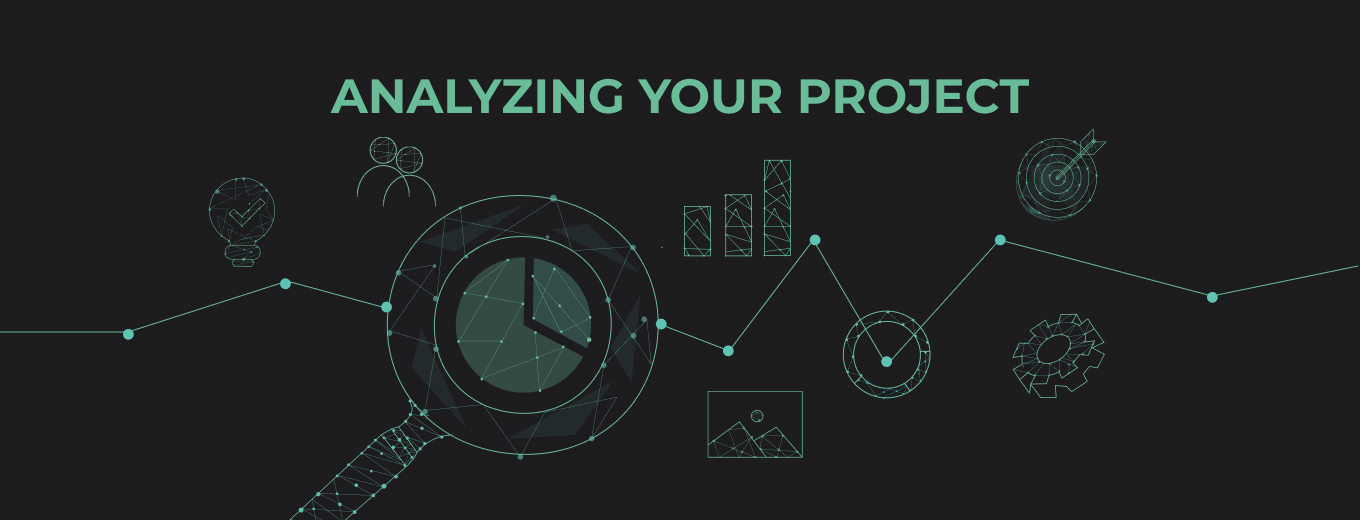
Svitlana Rakova
СОО



It is necessary to use software actively in modern business. Modern digital solutions allow the automation of many routine processes, increase employees’ productivity, and improve the efficiency of cooperation with clients. When a company decides on developing necessary software, it should consider some aspects that will help create a successful program. An organization can’t do this properly if it skips a business/project analysis stage to lay the foundation for successful software based on requirements and factual data about the company’s processes. Learn precisely how analytics helps with software development and why it’s so important.
Every company has a different business infrastructure. Employees work in different environments and have different roles. Also, organizations differ in legal aspects, office culture, etc. This directly impacts what digital product & approach to its development will best fit into a company’s system, both on a technical and social level.
The business analysis stage gathers all the necessary data about a company and its business requirements before proceeding directly to developing a digital product. Business analysts ensure the software correlates with the company’s performance and fits perfectly in its infrastructure. These experts concentrate on the value and final result, seeking solutions with minimal risks and costs without compromising the business needs & utility of the solution. They figure out which features need to be included in the initial version of the product and which can be left for later. IT analytics allows us to clearly define the software requirements and develop a further plan for its development. If there’s a bottleneck, then it’s the business analyst who is most probably going to identify it and help the development team create a quality solution.
Business analyst projects are an important step in every software development. Usually, each development team includes a BA specialist. Sometimes this role is covered by other team experts, like project manager, for example. But if a company doesn’t have its analysts, a third-party representative dives into its business processes and asks the right questions to recreate a holistic picture.
The business analysis stage is considered essential for a software development project. After all, when web and mobile app development and other software development-related processes were gaining popularity, IT developers were on their own communicating with customers, completing project documentation, defining goals, testing products, and so on. So, it took longer time to develop software of the right quality. Now, the business analyst acts as an intermediary between the customer and the developers. They coordinate the process at all levels. Speaking of BA responsibilities, for example for a new development project, we can highlight the following components of business analytics process:
It happens that BA experts also keep the in-house IT staff up to date on software projects and train them on how to support the software further.
IT analysts should be well versed in the business industry in which they are involved in software development, be it healthcare, FinTech, or eCommerce. This way, they are more aware of the company’s overall operations and the peculiarities of its work.

Companies are unlikely to get a quality mobile app or a web software solution if, the development team does not delve into the specifics of your business. Before you act, you must study in detail and ensure you are doing the right thing. This is precisely what project business intelligence deals with. Below, we will highlight what benefits the client receives, from completing a BA stage:
Finding highly qualified in-house employees in your subject area can take time and money. You get employees with impressive experience in your niche and expert knowledge by turning to the software development team that includes IT analysts. With their help, you get a comprehensive analysis and consider all the specifics of your business before getting to the development stage itself.
By providing themselves with a complete package of services, including developers and project managers in the role of IT analysts, companies spend much less time developing a product and launching it in the market. IT services companies can invest even ahead of deadlines, even when dealing with complex tasks. In doing so, companies improve their competitiveness.
With help of business analysts, you significantly reduce the risk of possible bugs and mitigate costs associated with their correction.
The threat in the online space is real. Data leakage of your employees, customers, and the company itself can occur if the software security was done poorly or using outdated methods to combat cyber threats. IT analysts will determine best practices for storing sensitive data, conducting transactions, etc.
If a company aimed to release software that would help them better interact with customers, but the software ended up being a failure, it would significantly damage customer relationships. Business analytics involves testing, through which analysts will identify weaknesses and quickly remedy the situation.
IT analysts worry about the relevance of your software. IT developers create products that will remain relevant for years, not just during a particular trend. Software development projects are also marketing analytics projects, which include analysis of current marketing trends.
Every profession requires good expertise. An IT analyst has the difficult task of studying the specifics of a company’s structure, performing optimization of project ideas, and controlling the execution of tasks. Let’s take a look at the challenges an IT analyst can face:
Companies generate vast amounts of data every second. For the most part, analysts spend their time sifting through this data, selecting only the information that is meaningful to them. Often, however, analytics tools are an aid in these cases. They make this process much more manageable.
From extreme to extreme, sometimes an IT specialist lacks information from the customer due to the specifics of the field in which he works. In this case, the IT analyst’s experience in the industry plays an important role.
Analysts do not always go straight to project development. Sometimes customers ask them to dive into product specifics. This can take months before they are trusted to do the work.
When working with a client, IT needs to ensure they have the same understanding of the software development result, its goals, features, design, etc. The IT analyst helps the two parties understand each other. Some may falsely assume that the services of an IT analyst are needed only at the initial stage of development. However, the development process itself never runs smoothly and requires adjustments. Analysts must be present during these processes and liaise between the customer and the developers.
Often, due to misunderstandings between the two sides, it turns out that the program’s functionality was not implemented in the way desired by the customer. Additional editing after the finished result can take a long time and cost the customer a lot. It is much cheaper to deal with the issue of functionality at the analytics stage. Thus, the project will be completed on time without unexpected costs.
The analytics process includes the following steps & tools:
No software development can do without a proper business analysis. With the help of in-depth analysis, the analyst identifies developers’ critical tasks and ensures that they are executed flawlessly. At the same time, they maintain communication with the customer and ensure that everything goes according to his wishes.
Comments